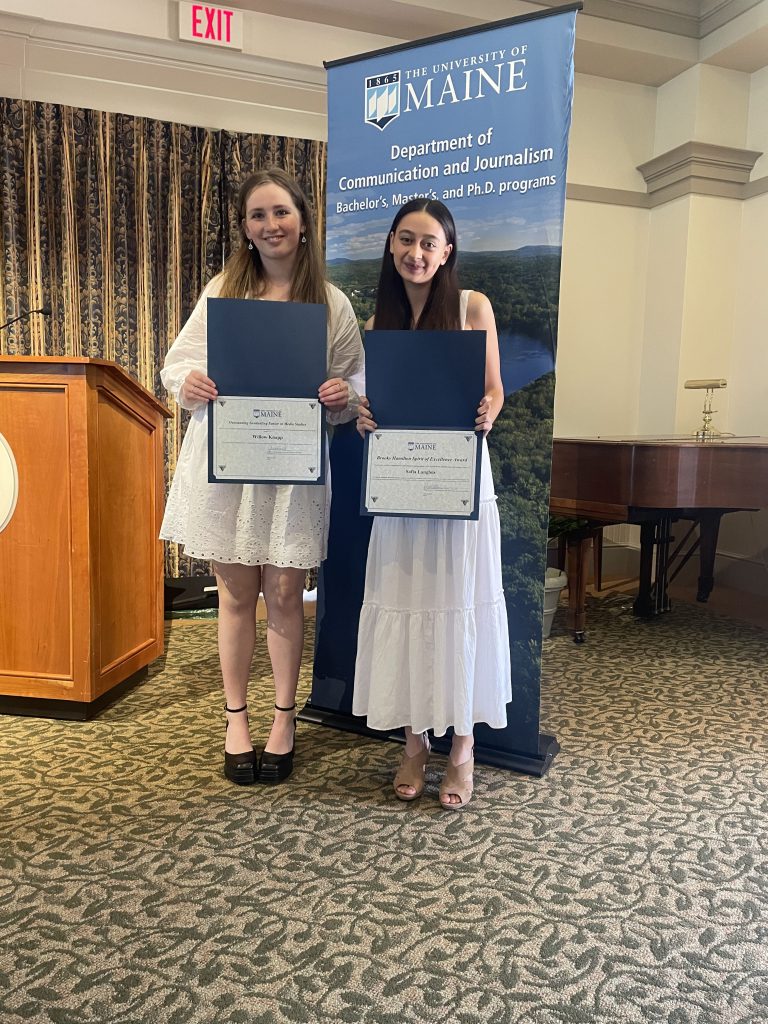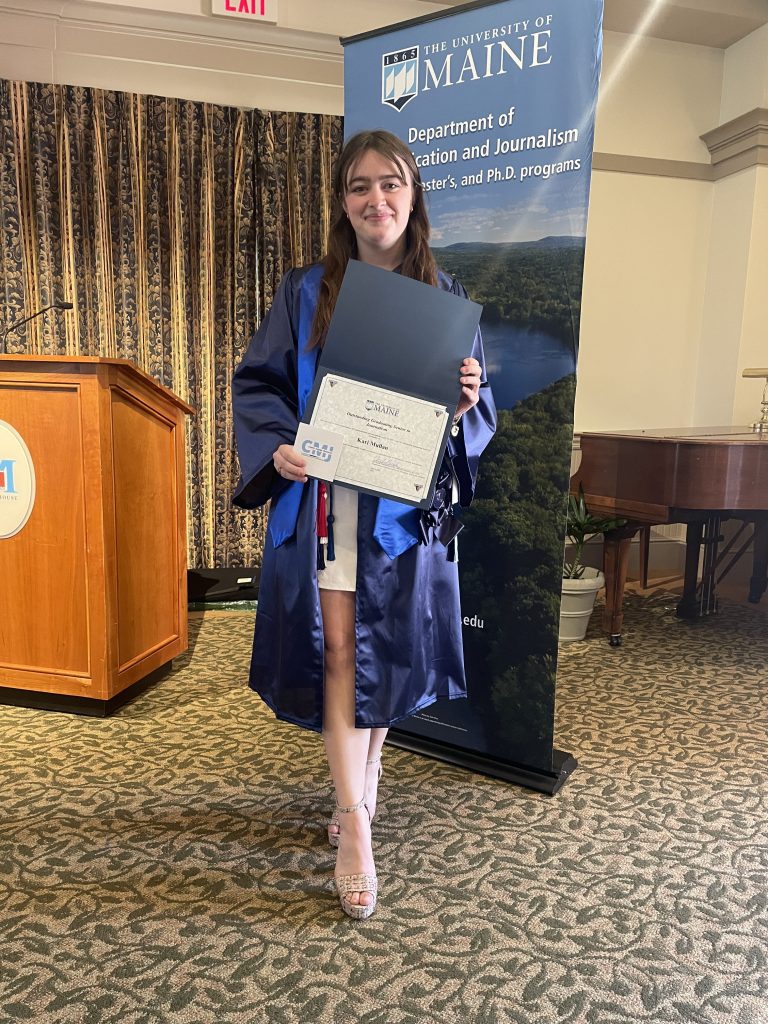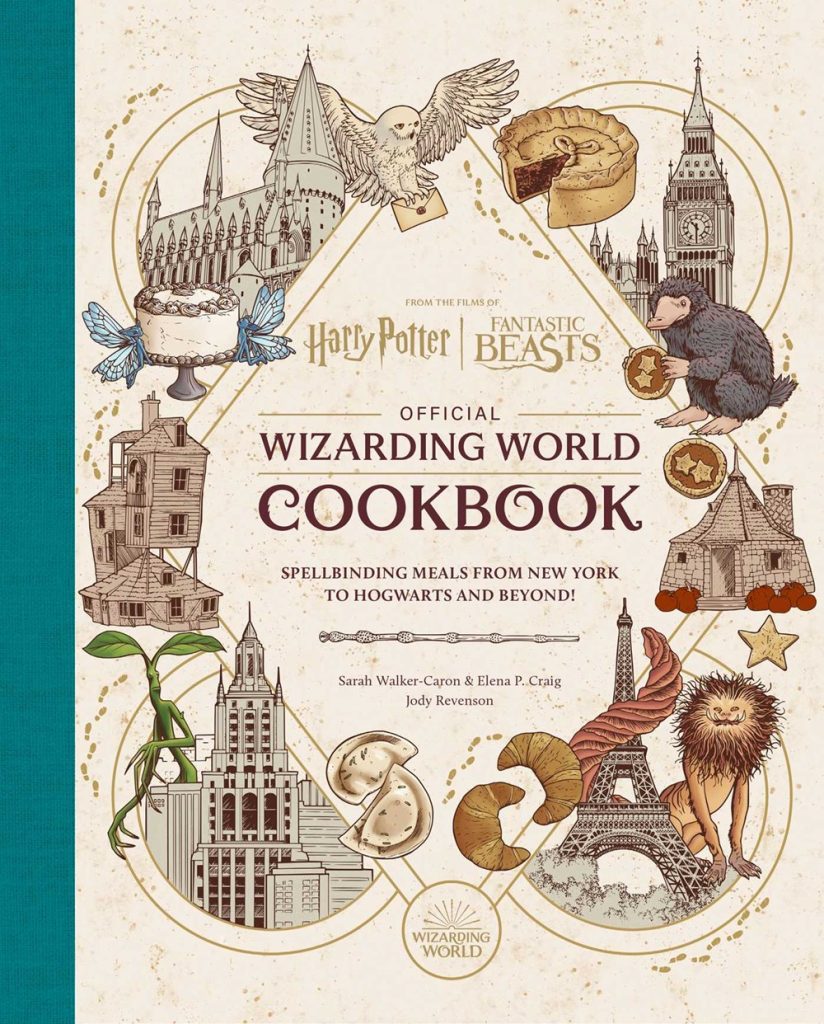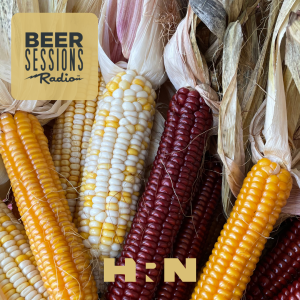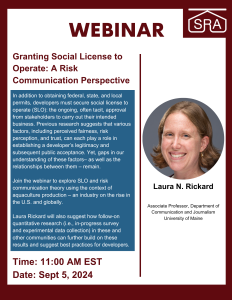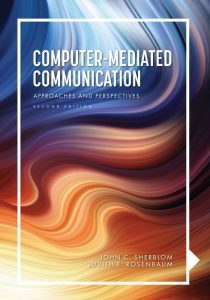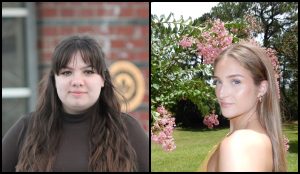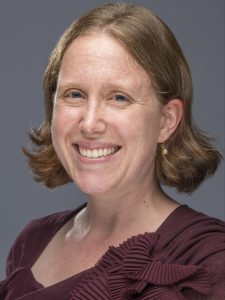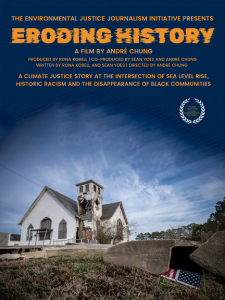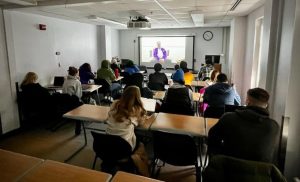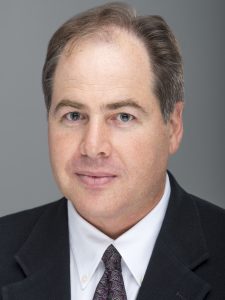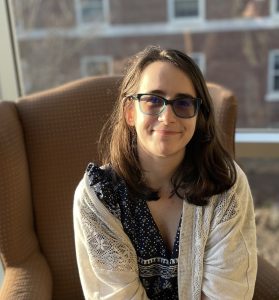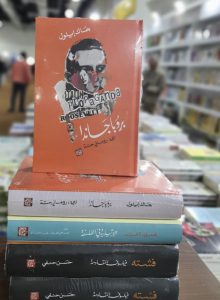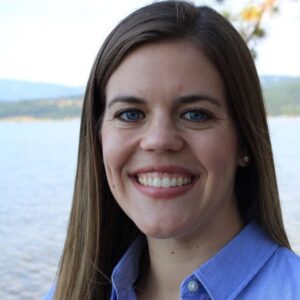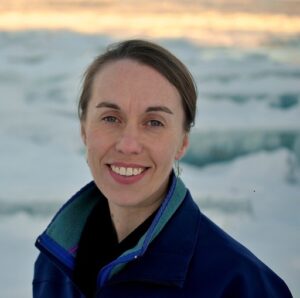News & Events
Create. Engage. Research.
2024-2025
Professor Nathan Stormer Wins Award from Rhetoric Society of America (June 2025)
Professor Nathan Stormer’s essay, titled: “The World Has Ended, Long Live Worlds: Rhetoric at the Limit of Humanness,” was named the 2025 Rhetoric Society of America Charles Kneupper Award winner. The Kneupper Award recognizes the best article published in Rhetoric Society Quarterly for the previous year.
The selection committee noted: “Stormer’s essay exemplifies the qualities that make for the kinds of rich and engaging rhetorical scholarship RSQ has long been known for. Not only does he wrestle with complex ethical and theoretical ideas, but he does so through writing that also helps to perform his argument. As Stormer describes, his essay works through “itinerant, micro-essays,” a style that demonstrates how form and thought work hand-in-hand. Stormer draws from a wide range of thinkers–including Denise Ferreira da Silva, Édouard Glissant, and Sylvia Wynter— in his inquiry into the “end of the world” trope and what it tells us about rhetoric’s relationship to humanness and to humanism.
Stormer will receive his award during the Awards Ceremony at the Rhetoric Society of America’s 2025 Institute in June at the University of Cincinnati.
The Department of Communication and Journalism Celebrates Our 2025 Graduates (May 2025)
The Department of Communication and Journalism congratulates all of our 2025 graduates! We had multiple opportunities to celebrate the success of our graduate and undergraduate degree awardees during the weekend of May 10 – May 11, 2025.
2025 Department of Communication and Journalism Graduate Student Awards
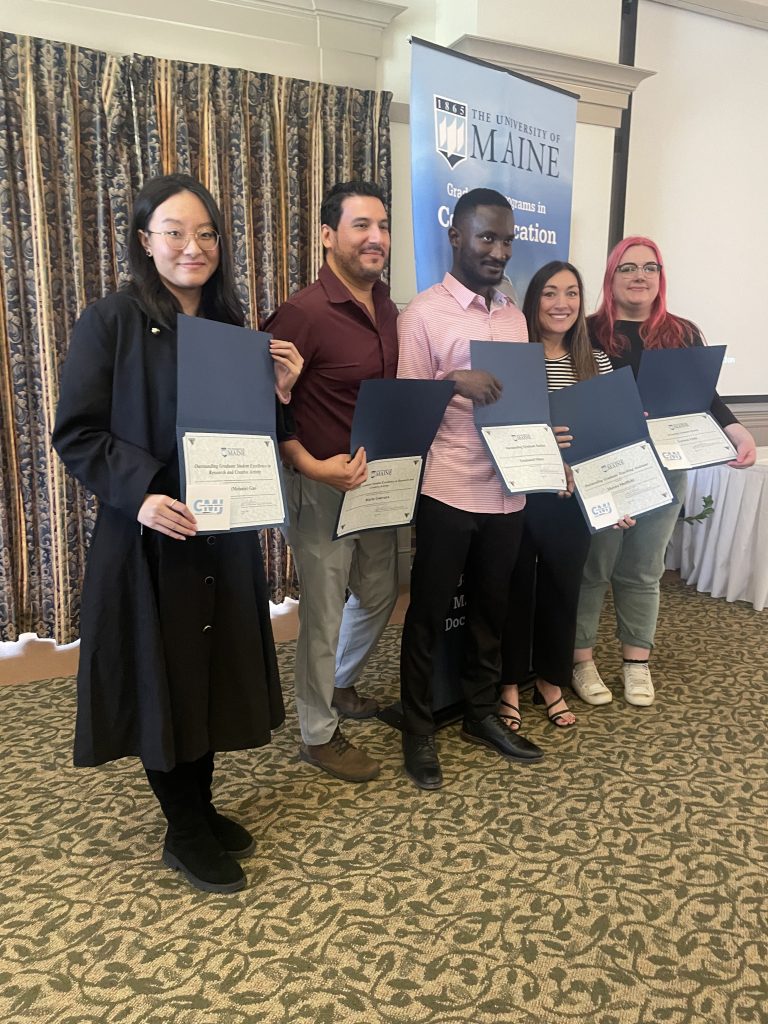
2025 Outstanding Graduate Student: Emmanuel Oduro.
2025 Outstanding Graduate Teaching Assistant: Sheena Hunter Sheffield.
2025 Outstanding Graduate Student – Excellence in Research and Creative Activity: Melanie Gao, Mario Guevara.
2025 Promising Graduate Student Award: A student in their first year (MA) or first or second year (PhD) who shows exceptional promise in research, teaching, and/or leadership: Larissa Little
2025 Department of Communication and Journalism Undergraduate Student Awards
2025 Wofford Gardner Award: Outstanding Academic Achievement in Communication: Bella Ross
2025 Outstanding Graduating Senior in Media Studies: Willow Knapp
2025 Brooks Hamilton Spirit of Excellence Award: Sofia Langlois
2025 Raymie McKerrow Award: Distinguished Undergraduate Student in Communication & Journalism: Oliver May-Fleming
2025 Outstanding Graduating Senior in Journalism: Kari Mullan
Associate Professor Rickard and Associate Professor Rosenbaum Promoted to Professor (April 2025)
The University of Maine announced in March, 2025, that among the 38 faculty members receiving tenure and/or promotion (or just-cause protection status) are Associate Professor Laura Rickard and Associate Professor Judith Rosenbaum, who will become Professor Rickard and Professor Rosenbaum as of September 1, 2025. The annual announcement of tenure and promotion “recognizes outstanding achievement in scholarship and research, teaching and community engagement.”
Communication MA Alumna Eleanor Patterson Wins Two Book Awards for Bootlegging the Airwaves (University of Illinois Press) (April 2025)
Auburn University Associate Professor of Media Studies, Eleanor Patterson, author of the 2010 University of Maine Communication MA thesis: “Have Some Self Respect!: A Critical Analysis of 30 Rock’s Neoliberal Discourse” recently won two awards with her book Bootlegging the Airwaves Alternative Histories of Radio and Television Distribution (University of Illinois Press, 2024). After graduating from the UMaine MA Program, Dr. Patterson went to the University of Wisconsin where she earned a Ph.D. Now she’s an Associate Professor at Auburn University in the Film & Media Studies Program. Bootlegging the Airwaves won the 2025 Broadcast Education Association (BEA) Book Award and the IAMHIST-Michael Nelson Book Prize for 2025 from the International Association for Media and History.
Maine Press Association Awards Scholarships to University of Maine Journalism Students (March 2025)
University of Maine undergraduates Elora Griswold, Emily Bontatibus, and Alexa Rose Perocillo were among the six student recipients of the Maine Press Association’s annual scholarship. For more information on the scholarship, please visit the Maine Press Association website:
Dr. Rosenbaum Appears on Maine Public’s “Maine Calling” Program (March, 2025)
Dr. Judith Rosenbaum, Associate Professor and Chair of the Department of Communication and Journalism, appeared as a panelist on the Maine Public program “Maine Calling” on March 11, 2025. the program examined the ever-changing social media landscape, and how a growing number of social media users are leaving certain platforms for a variety of reasons: to make a political statement, to reduce screen-time, or to preserve mental well being. You can listen to the program here.
Markovitch Named Center for Community News 2025 Champion (February, 2025)
Congratulations to Journalism Lecturer Ellie Markovitch, who was named a 2025 Center for Community News Champion! The CCN program recognizes and supports journalism leaders who build partnerships between newsrooms and college reporting programs. Markovitch, who is currently serving as the Academic Director on the Board of the Maine Press Association, won this national recognition for her work on the Election Coverage pilot program she organized and produced in collaboration with local Maine news partners in November, 2024.
UMaine Students Partner with Maine Press Association on Election Coverage Pilot Program (November, 2024)
In November, 2024, University of Maine Orono students from the Communication and Journalism Department participated in an Election Coverage pilot program by shadowing Maine journalists who were producing content on election night. Students reported alongside these journalists to practice reporting, writing and photography. The pilot program was initiated by Journalism Lecturer Ellie Markovitch, who is currently serving as the Academic Director on the Board of the Maine Press Association.
Emma Fermo shadowed Russ Dillingham of the Sun Journal and produced this piece; Emily Bontatibus worked alongside Faith DeAmbrose to produce this story for the Mount Desert Islander; Jess Cleary-Reuning also worked alongside DeAmbrose to produce this piece for the Ellsworth American; Hailey Inman shadowed Lynda Clancy at the Penobscot Bay Pilot to produce a photo gallery.
New Cookbook by Walker Caron Published (October 29, 2024)
On October 29, 2024, Insight Editions published the latest cookbook by University of Maine Journalism Instructor Sarah Walker Caron. Titled, Harry Potter and Fantastic Beasts: Official Wizarding World Cookbook: Spellbinding Meals From New York to Hogwarts and Beyond! the cookbook offers “more than 80 Harry Potter- and Fantastic Beasts-themed recipes. Sprinkled with fascinating behind-the-scenes film facts and bursting with exquisite photography… the cookbook offers step-by-step instructions on how to prepare… delicious recipes that can be enjoyed while watching the Harry Potter and Fantastic Beasts films.”
Sarah Walker Caron is the author of eight books, mostly on food and cooking, and the voice behind Sarah’s Cucina Bella (www.sarahscucinabella.com). Her food writing has appeared in Paste Magazine, The Girlfriend, Bella Magazine, and Fine Cooking, among other publications. She’s the author of eight books including The Super Easy 5-Ingredient Cookbook, Classic Diners of Maine and The Disney Princess Tea Parties Cookbook.
Markovitch Interviewed on “Beer Sessions Radio” Podcast Episode (October 10, 2024)
Ellie Markovitch, Communication and Journalism lecturer, was a guest at Beer Sessions Radio episode “Everybody Loves Corn.” The podcast is hosted by Jimmy Carbone and they were joined by writer Amy Halloran.
Markovitch talked about recreating her native Brazilian drink “aluá de milho” , fermented corn drink or corn kvass and recipes using Maine corn. Corn is a key crop in our food systems – regionally and beyond. Learn about the significance of corn.
Markovitch runs “Fermentation Friday” Food and Media lab at Hitchner Hall Commercial Kitchen, room 160. @fermentation_friday
Published Date: October 10, 2024
Podcast Episode: 725.
Listen here: https://heritageradionetwork.org/episode/everybody-loves-corn/
From American heritage to ancient traditions, historical recipes to the modern barbecue, there’s a lot to shuck and boil down here.
Two of Jimmy’s favorite minds weigh in on the subject: Amy Halloran is a flour ambassador, a true grains enthusiast, and a writer and advocate for regional grain systems; Ellie Markovitch is a multimedia storyteller, lecturer at the University of Maine, and a recipe expert. She uses food as a tool for community building.
Ellie Markovitch’s Instagram page:
https://www.instagram.com/elliemarkovitch/
To register for free Fermentation Friday workshops at UMaine Orono:
https://docs.google.com/forms/d/e/1FAIpQLSdJDVv9MQwLPVV8yWddatLgFUE_L4zqfgJFRUkzxxCEIinzHA/viewform
Photo Courtesy of Ellie Markovitch.
Professor Rosenbaum Appears on Maine Public’s “Maine Calling” (September 27, 2024)
Professor Judith Rosenbaum, associate professor and chair, Department of Communication and Journalism appeared on Maine Public’s radio program “Maine Calling” on September 27, 2024 to discuss “The Need for Nuance.” The program featured a discussion about how “society today is increasingly polarized, and one explanation is that many people frame issues in black and white, rather than address the gray area.” The program interviewed experts in psychology and communication about what it takes to speak and think with more nuance—instead of extremes—and how that can be beneficial in politics, the workplace, and personal relationships. You can listen to the program here.
Granting Social License to Operate: A Risk Communication Perspective
The Society for Risk Analysis presents a webinar, featuring Dr. Laura Rickard, Department of Communication and Journalism, University of Maine
September 5, 2024, 11:00 a.m. Eastern USA
2023-2024
Professor Emeritus John C. Sherblom and Associate Professor Judith E. Rosenbaum Publish Computer-Mediated Communication Approaches and Perspectives (Second Edition)
The Department of Communication and Journalism and Cognella Active Learning are pleased to announce the publication of the second edition of Computer-Mediated Communication: Approaches and Perspectives by John C. Sherblom and Judith E. Rosenbaum.
Computer Mediated Communication describes the constraints, experience, relationships, interactions, and implications of CMC; using the multiple perspectives of media richness, naturalness, synchronicity, affordances, personal identity, presence, propinquity, social information processing, hyperpersonal, and deindividuation; as they occur in the interactions of individuals, groups, and communities; with implications for Proteus effects and actor-networks.
The second edition substantially updates each of these perspectives with a description, multiple applications, analysis and critique, practical examples, illustration of concepts, communication ethics challenge, and set of discussion questions.
Maine Press Association Awards Scholarships to Two CMJ Students
The Maine Press Association recently awarded $2,000 in scholarships to two Maine journalism students.
Recipients of 2024 scholarships are Amy Blanchard, a junior majoring in communications and pursuing minors in French and anthropology; and Ella Candage, a senior studying journalism with a minor in marketing. Both Amy and Ella are students at the University of Maine at Orono.
The Maine Press Association has traditionally awarded scholarships every year to a junior or senior with financial need who plans to pursue a career in journalism. The funds come from the association’s annual scholarship auction.
To inquire about the scholarship, contact Maine Press Association Scholarship Committee Chair Maia Zewert at mzewert@lcnme.com.
Established in 1864, the Maine Press Association works to promote ethical journalism, to advocate for the interests of the journalists and organizations that constitute its membership, and to protect the freedom of the press and the public’s right to know.
New Sport Communication Minor to start in 2024 – 2025
The Department of Communication and Journalism is pleased to announce that beginning in academic year 2024 – 2025 the Department will offer a Minor in Sport Communication!
The sport communication minor will provide students with the critical understanding and experience in content creation needed to excel in a variety of aspects of the sports industry. In the sport communication minor, students will learn the principles of communication and journalism as they apply to sports-related events, topics, and people. The minor offers courses familiarizing students with the skills and tools needed to produce sport content for a variety of media from broadcasting to digital media, as well as courses that will teach students to function as effective communicators within and for sport organizations. Several courses also offer students the opportunity to develop a critical understanding of the role sport and sport organizations play in larger social processes and issues, including health promotion, issues of equity and equality, and the impact of media images.
Current undergraduate students interested in the minor should read the information in this announcement, and then schedule a time to speak with their advisor about the requirements and process for declaring it.
REQUIREMENTS FOR THE SPORT COMMUNICATION MINOR:
Courses*
Core (6 credits):
CMJ 136: Journalism Writing and Editing
CMJ 391/ 398: Special Topics: Sport Communication
Electives (12 credits):
CMJ 106: Storytelling
CMJ 237: Journalism across platforms
CMJ 257: Business and professional communication
CMJ 261: Photographic Reporting and Storytelling
CMJ 351: Audio and Video Production
CMJ 367: Public Relations
CMJ 380: Advertising, Media, and Society
CMJ 420: Health Communication
*Students majoring or minoring in any other CMJ program may double-count no more than three credits between the Sport Communication Minor and other CMJ majors and minors.
Minimum number of credits required to earn minor: 18
GPA requirements to earn minor: Students graduating with a minor in a CLAS field must earn a cumulative GPA of 2.0 or better in the courses in the minor field that are credited toward completion of the minor.
Minimum Grade requirements for courses to count toward minor: C-
Other requirements: A minimum of 12 credit hours must be completed at the University of Maine.
Contact information: Judith Rosenbaum-Andre, Department of Communication and Journalism, 420 Dunn Hall, 207.581.1934; Judith.rosenbaumandre@maine.edu
“Fish tales: Applying (risk) communication theory to inform social license to operate in the aquaculture industry”
A Seminar with Dr. Laura Rickard
On February 27, 2024, Dr. Laura Rickard gave a talk at the University of Southern California at the USC Dornsife Wrigley Institute for Environment and Susatinability
Cultivating seafood in water environments, global aquaculture production is on the rise. As the sector grows, however, so too d o challenges in securing the necessary social license to operate (SLO): ongoing, often tacit, approval from various stakeholders.
Previous research in both risk communication and SLO suggests that perceived justice plays a foundational role in establishing legitimacy and subsequent public acceptance. Yet, gaps in our understanding of both justice and SLO – as well as the relationships between these concepts – remain.
In her talk, Dr. Laura Rickard described a recent qualitative study of three proposed U.S. land-based aquaculture facilities (in Maine and California) to illustrate how various (in)justice perceptions may move communities toward granting or withholding social license for these projects. Dr. Laura Rickard also suggested how follow-on quantitative research (i.e., survey and experimental data) in these and other communities can further build on these results.
“Eroding History” Documentary Film Screening & Class Visits
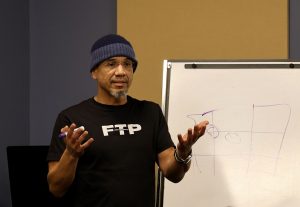
André Chung speaks to CMJ 391 students, February 6, 2024
On February 5 – 6, 2024, the Director (André Chung), and Producer/Co-Writer (Rona Kobell) of the film “Eroding History” travelled to Orono and the University of Maine to visit classes and offer a public screening of the documentary followed by a panel discussion.
“Eroding History” tells the story of two Black communities on Deal Island, on Maryland’s Eastern Shore, that are finding themselves at the intersection of sea level rise, historic racism, and the disappearance of Black communities. It is a climate justice story, made by two Black filmmakers and a Jewish grandchild of refugees.
Rona Kobell, Producer of “Eroding History” spoke about the Environmental Justice Journalism Initiative in the Department’s colloquium series on February 5, 2024.
“Eroding History” was screened at the University of Maine on Tuesday, February 6, 2024. The film was followed by a panel featuring the film’s director (André Chung) and it’s co-writer & producer (Rona Kobell) and University of Maine Climate Scientist and Associate Professor of Paleoecology & Plant Ecology Jacqueline Gill, Ph.D. The panel was moderated by Assistant Professor Haley Schneider, Ph.D. of the Department of Communication and Journalism.
The public screening of “Eroding History” on February 6, 2024, and related events, were supported in part by a grant from the Cultural Affairs/Distinguished Lecture Series Fund and a grant from the McGillicuddy Humanities Center at the University of Maine.
2022 – 2023
Dr. Rosenbaum’s Talks About Community-Building and Dialogue on Social Media
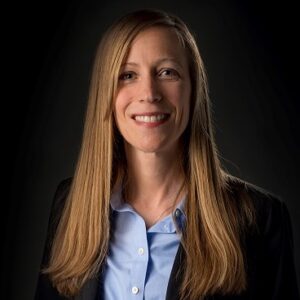
On March 24, Judith Rosenbaum, Associate Professor and Chair of the Department will deliver a keynote at the Annual Convention of the Connecticut Association for Adult and Continuing Education (CAACE). The talk will focus on the topic of “Community-Building and Dialogue on Social Media: Examining Democracy in the 21st Century.” For more information, click here.
The Evolving Relationship between News Media and Criticism
Associate Professor of Journalism, Michael Socolow, has published an insightful article on The Conversation, exploring the complex relationship between news media and criticism. In the piece, Socolow delves into the last fifty years’ evolution of criticism towards the media and how it influences public discourse both positively and negatively. Read the full article here.
Breaking the Bubble: Boosting News Literacy Workshop
On April 3, Fogler Library will host the “Breaking the Bubble: Boosting News Literacy” workshop, which is open to all undergraduate students. Led by Sanne Tamboer, a postdoc in Communication and Media at Radboud University, Judith Rosenbaum, associate professor in the Department of Communication and Journalism and Jen Bonnet, Social Sciences and Humanities Librarian at UMaine, the workshop aims to creatively evaluate news production and consumption. It will address how to determine the reliability of news content, ethically consume and share information, and be an informed 21st-century citizen.
The workshop is scheduled from 4:30-6 PM in the Lynch Room on the second floor of Fogler Library. Please, contact Jen Bonnet for any queries.
Willow Wind named CLAS Outstanding Graduating Senior of the Year
We are excited to announce that Willow Wind has been named the CLAS Outstanding Graduating Senior of the year. This prestigious honor is a testament to Willow’s exceptional academic achievements and outstanding contributions to the department. We are incredibly proud of Willow and grateful for all the hard work she has put in during her time with us. Congratulations, Willow, on this well-deserved recognition of your achievements!
Romany Melek Hetta’s Arabic Translation of “Propaganda” Takes the Stage at Cairo Book Fair
The first Arabic translation of Jacques Ellul’s renowned book “Propaganda” was showcased at the Cairo Book Fair in Egypt last January 2023 by Romany Melek Hetta, who graduated with a MA in Communication from CMJ in 2016. This momentous achievement was made possible after Romany first encountered Ellul’s insightful study of attitude formation in a course taught by his advisor and Associate Professor Michael Socolow, titled CMJ 525: Propaganda and Political Communication.
Dr. Socolow writes an article about Barbara Walters’ journalistic and cultural impact
Michael Socolow, Associate Professor, wrote an article for Slate about the journalistic and cultural impact of Barbara Walters, who died on December 30, 2022, at the age of 93. “For all her intrusive questions, her skillful interrogating, her sharp and incisive commentary, Walters’ legacy extends far beyond those famous interviews. She provided a model for women to unapologetically pursue their ambition, no matter how often it got them called ‘rude,’” Socolow wrote.
Dr. Rosenbaum-Andre was a panelist in Maine Calling
Judith Rosenbaum-Andre, Chair and Associate Professor, was a panelist on a recent episode of Maine Calling on Maine Public Radio. The theme was “Finding Common Ground.”
In addition, the episode’s VIP caller was Caty DuDevoir, a third-year student studying anthropology and journalism; DuDevoir is also the news editor for Maine Campus Media.
You can find the episode here.
Dr. Stormer was interviewed for his article “Rhetoric by Accident” at Live Theory
Nathan Stormer, Professor of Rhetoric, was interviewed at Live Theory, a program sponsored by the Dornsife College of Letters, Arts, and Sciences at USC that honors scholars who bring writing and rhetoric scholarship to life. He discussed his article “Rhetoric by Accident,” which was published in Volume 53(4) of the Journal of Philosophy & Rhetoric, in which he articulates a view of accidents that shape rhetorical work but are not themselves purposeful, motive-driven, directed, or ethical. You can listen to the episode here.
Dr. Michael Socolow Wins Essay Contest on the History and Importance of Television
We are delighted to announce that Dr. Michael Socolow, Associate Professor, has emerged as the winner of an essay contest sponsored by Journalism History. The contest, in celebration of the 60th anniversary of television news coverage of the assassination of John F. Kennedy in 1963, sought to examine the history and significance of television over the past 60 years.
Professor Socolow’s winning essay, entitled “Commercial Television’s Secret Goldmine: The Hidden Riches Generated by U.S. Network TV News, 1960-1970,” will be published in the Fall edition of Journalism History and provides an in-depth examination of the impact and influence of television over the decades.
Read more on the Journalism History website.
Dr. Couture Bue wins distinguished article award at NCA
Professor Couture Bue won a Distinguished Article Award from the National Communication Association’s Social Cognition Division. She received the award for a co-authored paper entitled. “Marr’s Tri-Level Framework Integrates Biological Explanation Across Communication Subfields.” The article was recently published in the Journal of Communication
The department is incredibly proud of Dr. Couture Bue for this amazing achievement.
Professor Markovitch joins “Maine Calling” for an episode on baking bread
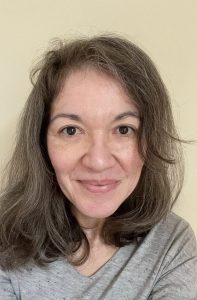 On Monday November 7, Ellie Markovitch, Lecturer in Journalism, joined Maine Calling to discuss the art of baking bread in Maine. You can listen to Ellie, who is both a photojournalist and a multi-media storyteller with Story Cooking, here.
On Monday November 7, Ellie Markovitch, Lecturer in Journalism, joined Maine Calling to discuss the art of baking bread in Maine. You can listen to Ellie, who is both a photojournalist and a multi-media storyteller with Story Cooking, here.
Dr. McGreavy wins 2022 NCA J. Robert Cox Award in Environmental Communication and Civic Engagement
Bridie McGreavy has won the 2022 National Communication Association J. Robert Cox Award in Environmental Communication and Civic Engagement. This award is given to members of the NCA’s environmental communication division who have shown a substantial commitment to environmental issues through organizational leadership, service, and/r activism, who have been actively engaged for several years at a regional, national, or international level.
The Department of Communication and Journalism is incredibly proud that Dr. McGreavy was recognized for her substantial environmental achievements.
CMJ faculty and graduate students take home top poster award at AEJMC conference
Dr. Laura Rickard, Associate Professor, Nathan Smith, first year doctoral student, and Ella Gurney, first year MA student took home the top poster award for the Communicating Health, Science, Environment, and Risk division at the 2022 convention for the Association of Education in Journalism and Mass Communication held in Detroit. Their poster was based on their research entitled “Fairest fish of all: Perceptions of procedural and distributive justice in proposed aquaculture facility siting”
Event: Dr. Sutton presents “Wabanaki Fisheries: What rivers can teach us about partnerships”
Dr. Anthony Sutton, community food facilitator, ME Shellfish Learning Network, and CMJ adjunct instructor, will present a talk, “Wabanaki Fisheries: What rivers can teach us about partnerships,” on February 14, 3:00 – 4:00 pm.
Read more on the Senator George J. Mitchell Center for Sustainability Solutions website.

